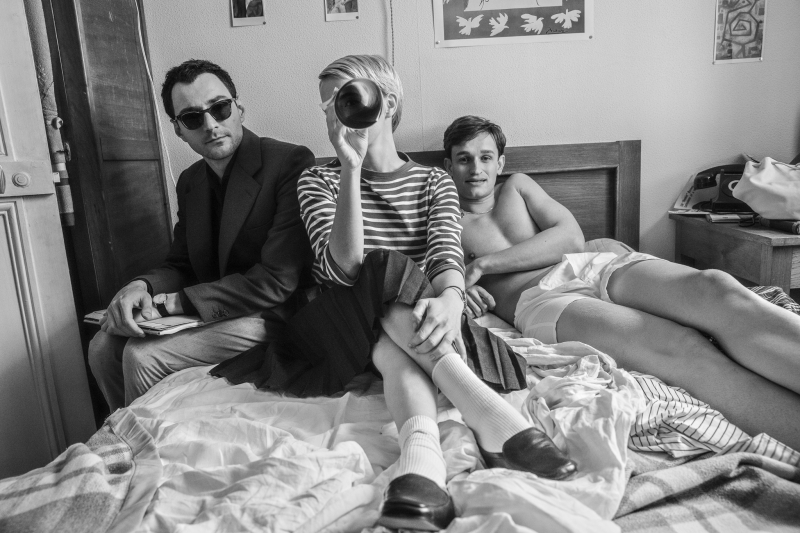
Jean-Louis Fernandez/ARP Sélection
MOVIE REVIEW
Nouvelle vague (2025)
Film critics should be wary of superlatives. I’ve been on both the giving and receiving ends of this advice. Indeed, fashioning reviews after pull quotes in ad slicks is a common rookie mistake. Effusive plaudits should be used sparingly, so once deployed the readers will know you truly mean what you say. Richard Linklater’s “Nouvelle vague” is one such case. But instead of hailing it as the next best somesuch, I’ll say it truly embodies the spirit of this website’s mission at launch in 2008.
See, the OG Critic’s Notebook crew met at the Cinema Studies department at New York University’s Tisch School of the Arts in the mid-aughts. We were intimately familiar with the French New Wave and the legends associated with the movement – the storied Cahiers du Cinéma gang that determined the best way to practice film criticism was through filmmaking. As far as I know, none of our writers or indeed our classmates have gone on to follow in the footsteps of these giants. Filmmaking has never been easier with the advent of the iPhone, yet capitalism has crushed any revolutionary spirit.
“Nouvelle vague” is specifically about the making of 1960’s “Breathless.” After watching everyone else in his ciné-club cohort successfully pivot to filmmaking, Jean-Luc Godard (Guillaume Marbeck) is anxious to leave his own mark. He declines an offer to do literary adaptation and is dead set on making something true to his philosophies and moral positions no matter how miniscule the budget.
It’s quite amusing to bear witness to all these anecdotes on guerilla filmmaking we’ve only read about in textbooks. There’s no script, just the real-life Michel Portail case serving as inspiration. Jean-Luc makes up scenarios on the fly. He keeps a promise by casting his pal Jean-Paul Belmodo (Aubry Dullin), who is ebullient despite having lingering doubts about whether the film will ever see the light of day. Jean Seberg (Zoey Deutch) wants to quit. Producer Georges de Beauregard (Bruno Dreyfürsft) is incensed that Jean-Luc will film a couple of hours then shut down for the day because the creative process can’t be forced.
The who’s who of cinema studies are namedropped left and right, including Rivette (Jonas Marmy), Rohmer (Côme Thieulin), Melville (Tom Novembre), Rossellini (Laurent Mothe), Bresson (Aurélien Lorgnier), Cocteau (Jean-Jacques Le Vessier) etc. While it may be inside baseball, it’s an absolute blast for true cinephiles to be in this milieu with these characters.
I’m sure Mr. Linklater had a ball making this one, restaging some of the most iconic scenes in movie history. But “Nouvelle vague” is much more than that. Though it doesn’t lecture, the film does elucidate the principles of French New Wave for those uninitiated. True to the spirit of filmmaking as criticism, he has adapted the visual vocabulary of “Breathless”: Academy ratio, black and white, jump cuts. Just as with so many entries from his idiosyncratic filmography, he vividly creates a whole immersive vibe beyond just the characters, wardrobe and decors. It magically transports the audience to a distinct time and place; though he’s less of a purist than Godard, since the end credits indicate the use of visual effects here.
It’s so clear that “Nouvelle vague” is a labor of love – the love for movies – much like “Cinema Paradiso.” And with its real-life basis, there’s no mistaking it for parody. Mr. Linklater has here established himself as much more than a chronicler of Americana. He’s made one hell of a French movie. In the current cultural climate, the film is also a much-needed reminder of a time when it was truly exciting to be alive.
Comments